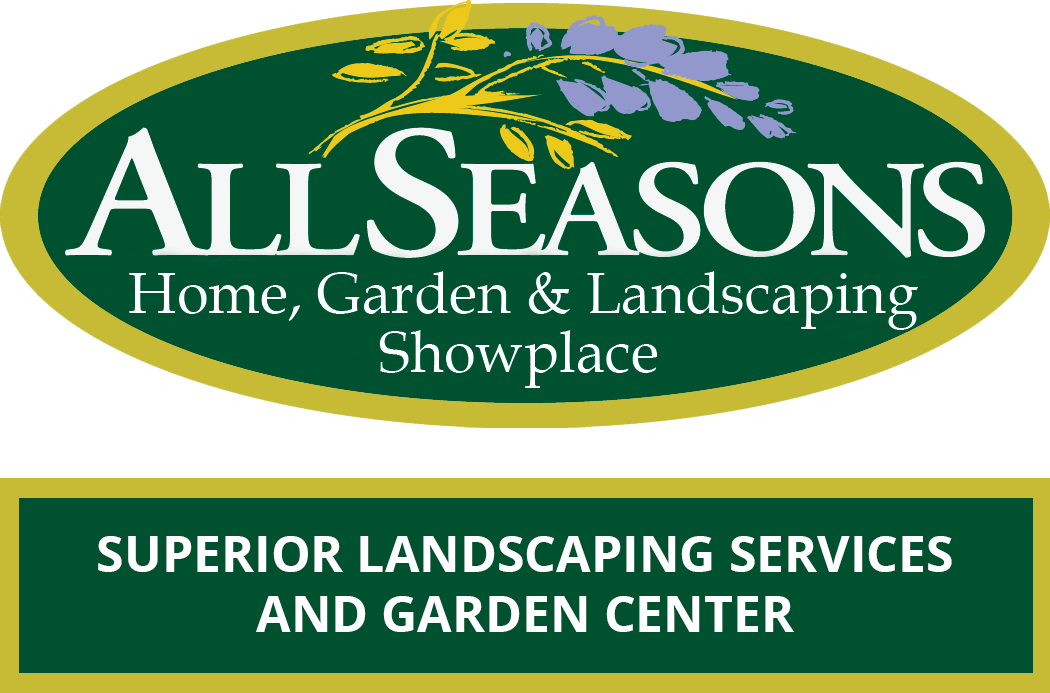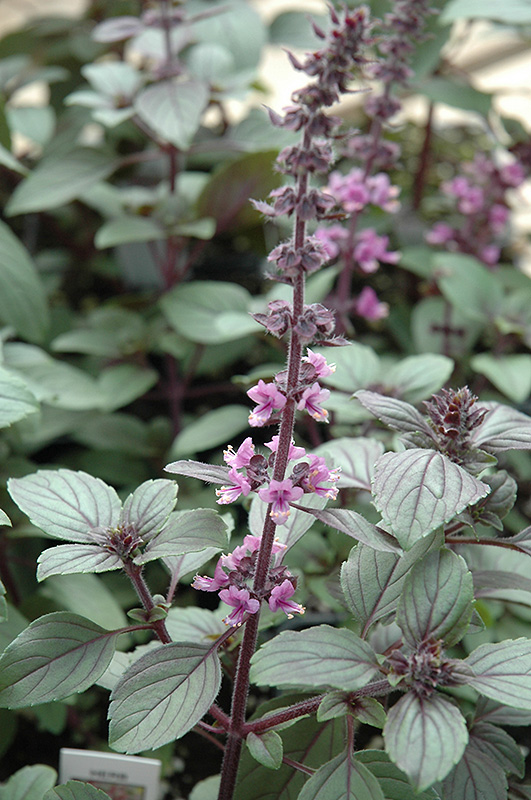Plant Height: 18 inches Flower Height: 24 inches Spread: 18 inches
Sunlight:
Hardiness Zone: 9 Edible Qualities African Blue Basil is a perennial herb that is commonly grown for its edible qualities, although it does have ornamental merits as well. The fragrant oval bluish-green leaves with distinctive purple veins which emerge deep purple in spring are usually harvested from early summer to early fall. The leaves have a pleasant taste. The leaves are most often used in the following ways: Features & Attributes African Blue Basil has masses of beautiful spikes of pink flowers with purple calyces rising above the foliage in mid summer, which are most effective when planted in groupings. Its attractive fragrant oval leaves emerge deep purple in spring, turning bluish-green in color with distinctive purple veins the rest of the year. The dark red stems can be quite attractive. This is an herbaceous evergreen perennial herb with an upright spreading habit of growth. Its medium texture blends into the garden, but can always be balanced by a couple of finer or coarser plants for an effective composition. This is a high maintenance plant that will require regular care and upkeep, and can be pruned at anytime. Deer don't particularly care for this plant and will usually leave it alone in favor of tastier treats. It has no significant negative characteristics. Aside from its primary use as an edible, African Blue Basil is sutiable for the following landscape applications; Planting & Growing African Blue Basil will grow to be about 18 inches tall at maturity extending to 24 inches tall with the flowers, with a spread of 18 inches. It grows at a fast rate, and under ideal conditions can be expected to live for approximately 5 years. As an evegreen perennial, this plant will typically keep its form and foliage year-round. This plant is quite ornamental as well as edible, and is as much at home in a landscape or flower garden as it is in a designated herb garden. It should only be grown in full sunlight. It prefers to grow in average to moist conditions, and shouldn't be allowed to dry out. It may require supplemental watering during periods of drought or extended heat. It is not particular as to soil type or pH. It is somewhat tolerant of urban pollution. This particular variety is an interspecific hybrid. It can be propagated by cuttings; however, as a cultivated variety, be aware that it may be subject to certain restrictions or prohibitions on propagation. African Blue Basil is a good choice for the edible garden, but it is also well-suited for use in outdoor pots and containers. With its upright habit of growth, it is best suited for use as a 'thriller' in the 'spiller-thriller-filler' container combination; plant it near the center of the pot, surrounded by smaller plants and those that spill over the edges. Note that when growing plants in outdoor containers and baskets, they may require more frequent waterings than they would in the yard or garden. Disclaimer - This Plant Finder tool is an online resource representing many of the varieties that we carry over the course of the season, and is intended for informational purposes only. Inventory varies seasonally, so we cannot guarantee that every plant will be in stock at all times - please contact the store directly for current availability. It does not include our entire selection of plants, so be sure to visit our store to see varieties that may not be represented on this list.All Seasons Plant Finder
![]()
![]()
![]()
![]()
![]()
![]()
![]()
![]()
![]()
![]()
![]()
![]()
![]()

